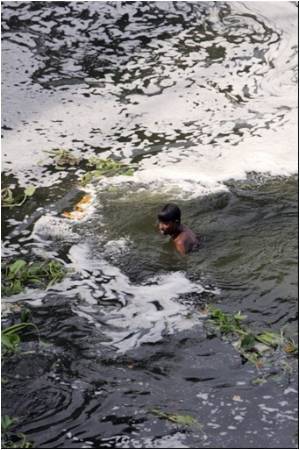Levels of drugs did not reduce from the waste water treatment plant downstream and also were not removed effectively by drinking water treatment plants.

The research is part of a special section on pharmaceuticals in the journal Environmental Toxicology & Chemistry.
"These results demonstrated a link between waste water discharges and quality of potable water sources and emphasized the importance of evidencing that improvements to waste water treatment protect sources of drinking water--a project we have embarked on since the publication of these results," said, lead author Dr Viviane Yargeau.
Source-Eurekalert















